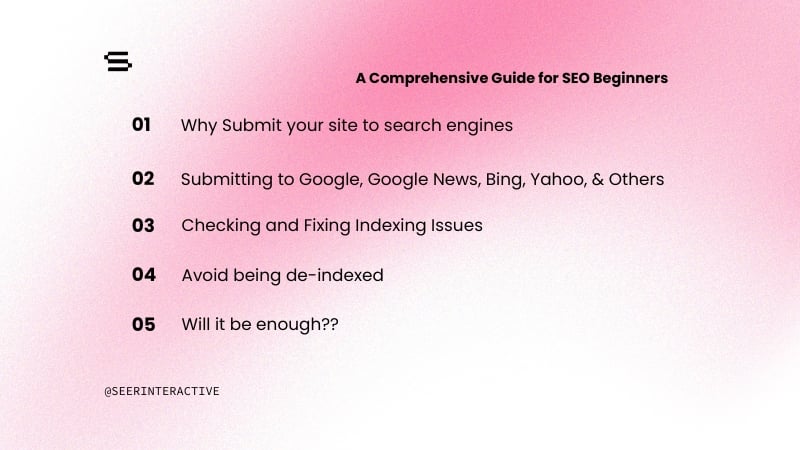One of my favorite things about PPC is the completeness of the data, but at times it can be overwhelming! That’s why I’m going to start by explaining basic PPC terms and metrics that create the foundation for all PPC campaigns and are essential to your success.
Seeing that SEER is a search agency providing both PPC and SEO services to clients, I’m personally interested in understanding of how my work on the PPC team can help SEO efforts and vice versa. My goal is to help you understand how PPC and SEO can work together.
This week we’ll start with understanding your PPC traffic and how it relates to SEO.
1. Keywords
First, it’s important to understand keywords, as they are the basis for most search marketing. A keyword is a specific word or phrase a person enters into a search engine in an attempt to have that search engine return relevant matches.
Keyword bids are one of the many factors used to determine whether or not your ads are triggered in paid results. Keyword bidding involves bidding on keywords in order to draw traffic to your web site, typically set up as cost-per-click (CPC). You set CPC bids to tell Google how much you're willing to pay for each click.
Choosing the right keywords is important because it will determine the quality of traffic your site receives. The more targeted and specific your keywords are to your business, the more likely you are to receive quality traffic.
Also, because you are paying-per-click (PPC) it’s crucial you’re bidding on cost effective keywords. Watch out for high priced keywords that won’t return a profit for your business even if they convert.
- Check out Google Adword’s Keyword Tool for keyword ideas!
How It Relates to SEO: Sharing keyword data is mutually beneficial to both PPC and SEO. Simultaneously running organic and PPC campaigns gives you double the data to analyze. Determine which organic and PPC keywords have the highest conversion rate, and use that information to optimize your overall strategy.
There is also a lot of keyword discovery that PPC can bring to SEO. PPC can test different strategies (usually for a minimal cost) since we are able to measure results immediately before using up all our resources and proceeding with an SEO strategy that may or may not play out.
2. Impressions
An impression is the number of times an ad is displayed or viewed on a search results page or web page. While impressions are not typically a standalone metric used to determine the success of a campaign; they are helpful in understanding how and what people are searching. They can also help us gauge interest - higher impressions, higher interest.
How it relates to SEO: Although impressions are unique to PPC, they can sometimes provide useful insight to SEO. By looking at search volume in Google's Adwords keyword tool SEOs can get an idea of how much interest there is for a particular topic. For instance, you may find there are certain keywords with a large number of impressions but low clicks. You could then look at the search engine results page (SERP) to see if it is something that may not work well for PPC, but could be worth targeting for SEO with informational piece of content.
3. Clicks
A click is simply the action of a person seeing your ad and “clicking” on it.
Like the name implies, clicks are the backbone of pay-per-click advertising. Not only do they drive traffic to your site, but the number of clicks you receive on a daily/weekly/monthly basis will determine your costs (or ad spend) since we are paying for every click. The cost per click (CPC) varies for every keyword (more competitive words are more expensive) so important to monitor activity on a regular basis to insure your budget isn’t depleted early in the month because of high click volume early on.
How it relates to SEO: Complete data transparency is one notable difference between PPC and SEO. Similar to how PPC reviews Adwords data, SEO uses Google Analytics to see what kind of traffic is coming from organic keywords. Unfortunately there are instances when Google blocks the data from SEO results so some of the keyword information is missing. This is one-way PPC can help! We know exactly what keywords are generating the most clicks.
- “It's pretty cool that you guys get to see all of [the data] but I guess you get what you pay for!” – Alisa Scharf, SEO Associate at SEER
Looking at CPC, could also help identify valuable keywords for SEO. If PPC is willing to bid on expensive terms with high average CPCs, it is likely that these terms are valuable to the business!
4. Click-Through Rate (CTR)
How it’s Calculated: Clicks divided by Impressions
Why it’s Relevant to PPC: CTR is a ratio that tells us how often people who see your ad end up clicking on it (or “clicking through” to your site) and is often considered one of the most important metrics in PPC. We use CTR to help us determine what ads resonate most with searchers and we can use this information when creating new ads to test. A higher CTR is a good indication that users find these ads relevant, helpful or enticing. Click-through is also important because it directly affects your Adwords quality score.
Be cautious though, a high click-through rate is not always ideal. Keywords that drive a large number of clicks without generating additional leads for your business could negatively affect your profitability because you’re paying-per-click. This is another reason it’s important to choose relevant and affordable keywords for your account.
How it relates to SEO: Looking at ads with high PPC click-through rates can help you understand what headlines and copy works best for turning impressions (views) into clicks. This insight can be applied when creating meta descriptions for your SEO landing pages. While Google no longer uses keywords in meta descriptions as a signal, they can be helpful in coercing potential visitors to click on your site rather than your competitor. One benefit of using PPC ads is the immediateness of results. With PPC you’ll know relatively quickly what works whereas organic testing can take a long time.
5. Landing Pages
This is the first page a user sees once they click your ad. Landing pages are designed to achieve a desired marketing outcome and can be specific to each ad.
Why it’s Relevant to PPC: Driving traffic to your site through PPC can be relatively meaningless if visitors aren’t engaging in the desired action or goal. The effectiveness of your PPC landing pages is vital to getting returns from these campaigns. Whether the goal is purchasing a product, signing up for an email newsletter, or filling out a Contact Us form, it’s important your landing page is designed to encourage this action. Some landing page best practices include informative yet concise body copy, powerful headlines, clear call-to-action, engaging visuals, and creating credibility through awards, recognitions and testimonials.
- Check's out Aaron’s "Spin Test" and see if your landing page passes!
How it relates to SEO: Since every company is different it is important to continually test landing page variations and increase conversions because what works for one, might not work for another. A/B testing works well for landing page optimization.
While landing page optimization is an ongoing and important strategy for PPC, many SEOs think the job is done when the traffic has arrived at the page. While in many ways the hard part is done, in a lot of ways the job is just beginning too! This is when it can be beneficial for SEO to take notes on PPC landing pages and what’s proven to be successful. It's important to keep in mind that often landing page optimization is a bit trickier for SEO, as they often need to include keyword rich copy on the page in order to rank at all.
Keep an eye out for more “Basics” blogs in the future!

